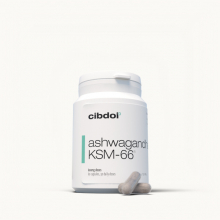Is it ok to take ashwagandha everyday?
Last updated:
Published:
Are you curious about the safety of taking ashwagandha, an evergreen shrub herb from India, every day? Well, you're not alone. Ashwagandha, a popular herbal supplement in Ayurvedic medicine known for its ability to promote health, has gained attention for its potential benefits. But is it okay to consume this herb daily? The answer isn't straightforward.
Contents:
The safety of taking ashwagandha, a medicinal herb, every day depends on various factors such as your overall health, existing medical conditions, and the dosage you take. While some studies suggest that ashwagandha, an herb, may have positive effects on anxiety reduction and immune function, it's crucial to review the available research and consult with a healthcare professional before incorporating it into your daily routine as a supplement.
Remember, traditional medicine may help people with thyroid issues. What works for one person may not work for another, so don't hesitate to seek personalized advice from a trusted healthcare provider who can guide you based on your unique circumstances.

Recommended Dosage of Ashwagandha
The recommended dosage of ashwagandha supplement can help with anxiety and may vary depending on the form and concentration, typically measured in mg. It is important to follow the instructions provided by the manufacturer or healthcare provider for safe and effective usage.
When incorporating ashwagandha into your daily routine as an anxiety supplement, it is often recommended to start with a lower dose and gradually increase it. This allows your body to adjust and helps minimize any potential side effects that may occur. Consulting with a healthcare professional can provide valuable guidance in determining the appropriate dosage for your specific needs, based on research and avoiding the use of a placebo.
Various studies have found that ashwagandha, a natural supplement, can help regulate cortisol levels, which is important for brain health and managing anxiety. Higher doses of ashwagandha have shown potential in reducing cortisol levels, but it's crucial not to exceed recommended limits.
Studies have explored the impact of ashwagandha on male reproductive health, specifically its potential to help men dealing with infertility issues. Some research suggests that higher doses of ashwagandha may improve sperm concentration and count. However, it's crucial to note that individual results may vary, and consulting with a healthcare professional is advised before making any changes to alleviate anxiety. Additionally, it's important to consider that the effects of ashwagandha may not be solely due to its active ingredients, as the placebo effect could also play a role.
Apart from its effects on stress hormones and fertility, ashwagandha has also been studied for its potential benefits in managing blood sugar levels and diabetes care. Higher doses have shown promise in helping regulate glucose metabolism, according to studies. However, caution should be exercised when adjusting dosages without medical supervision.
Furthermore, if you are an athlete or engage in regular physical activity, a study suggests that ashwagandha could potentially help enhance performance. Some research shows that higher doses of this herb might increase VO2 max (maximum oxygen consumption), helping participants improve endurance during exercise sessions.
Benefits of Ashwagandha for Long-Term Use
Ashwagandha, a powerful medicinal herb also known as Indian ginseng or Withania somnifera, has been traditionally used in Ayurvedic medicine for its numerous health benefits. One common question that arises is whether taking ashwagandha every day can help. Research studies suggest that ashwagandha may have positive effects on overall well-being and may be beneficial when taken regularly.
Ashwagandha's adaptogenic properties have made it popular for centuries. Studies and research indicate that this herb helps people cope with stress by regulating cortisol levels and promoting a sense of calmness. Taking ashwagandha supplements daily, with a recommended dosage of mg, may provide ongoing support for overall well-being. By reducing stress and anxiety, individuals may experience improved sleep quality and enhanced relaxation.
Furthermore, research studies suggest that ashwagandha could potentially help people by offering long-term cognitive benefits. Regular consumption of ashwagandha supplements has shown promise in improving memory and cognitive function over time. This makes it an appealing option for those seeking to maintain brain health and enhance their mental performance, especially for individuals looking for mg help.
While these initial findings are promising, it is important to note that more research is needed to fully understand the long-term benefits of ashwagandha. Despite its rich history in traditional medicine, scientific studies exploring the effects of prolonged use on helping people with MG are limited. Therefore, caution should be exercised when making definitive claims about the extent of its advantages in helping people with MG.
Potential Side Effects and Risks of Taking Ashwagandha Daily
Ashwagandha, a popular herb in traditional Ayurvedic medicine, has gained attention for its potential health benefits. Many people wonder if daily ashwagandha intake can help with research. While generally considered safe, there are some potential side effects and risks that individuals should be aware of when taking ashwagandha every day.
Gastrointestinal Discomfort
For most individuals, taking ashwagandha daily can help with gastrointestinal discomfort such as stomach upset or diarrhea. These symptoms are usually temporary and subside on their own without any long-term effects. It is important to consult with a healthcare professional for proper mg dosage and to conduct thorough research on the benefits and potential side effects of ashwagandha.
High Doses and Prolonged Use
Taking high doses of ashwagandha or using it for an extended period may increase the risk of certain side effects that can affect people. One potential effect is drowsiness, which can impact an individual's ability to concentrate or operate machinery safely. It is advisable to avoid activities that require alertness until you understand how your body reacts to ashwagandha and can help people.
In rare cases, ashwagandha may cause allergic reactions that require immediate medical attention. Symptoms such as rash, itching, swelling, or difficulty breathing can occur and seeking help is crucial.
Specific Medical Conditions and Medications
Individuals with specific medical conditions should exercise caution when considering daily use of ashwagandha. For example, those with autoimmune disorders such as rheumatoid arthritis or lupus may need to avoid this herb due to its potential immune-stimulating effects.
Furthermore, individuals taking medications for thyroid disorders should consult their healthcare professional before starting regular use of ashwagandha as it may interfere with thyroid function.
It is essential to remember that each person's circumstances are unique when it comes to ashwagandha supplements. Consulting with a healthcare professional can help assess potential ashwagandha benefits and risks based on individual conditions and medications being taken.
Conclusion
In conclusion, deciding whether to take ashwagandha daily depends on several factors. It is important to consider the recommended dosage, the benefits of long-term use, and the potential side effects and risks.
It is generally advised to follow the instructions provided by reputable sources or healthcare professionals when taking ashwagandha supplements or ashwagandha extract. Taking the correct amount can help ensure you receive the desired benefits without any adverse effects.
Ashwagandha has been shown to offer various benefits when used over a longer period. These include stress reduction, improved cognitive function, enhanced immune system support, and increased energy levels. If you are looking for these long-term advantages, taking ashwagandha daily might be beneficial for you.
However, it's crucial to be aware of potential side effects and risks associated with daily ashwagandha consumption. While generally considered safe for most people when taken in appropriate doses, some individuals may experience gastrointestinal issues or allergic reactions. It's always wise to consult with a healthcare professional if you have any concerns or pre-existing medical conditions.
In order to make an informed decision about taking ashwagandha every day, consider your individual needs and health status. It may be helpful to weigh the potential benefits against any possible risks before incorporating it into your routine.
Remember that this conclusion is not intended as medical advice but rather as a general overview based on available information. If you are unsure about whether ashwagandha is suitable for you or have specific health concerns, seek guidance from a qualified healthcare provider.
FAQs
Can I take ashwagandha with other medications?
It is always recommended to consult with your healthcare provider before combining any ashwagandha supplements or medications. They can provide personalized advice based on the benefits of ashwagandha and your specific situation, and help prevent any potential interactions between substances.
How long does it take for ashwagandha to start working?
The effects of ashwagandha can vary from person to person. Some individuals may notice improvements in their well-being within a few weeks, while others may require more time. Consistency and patience are key when incorporating ashwagandha into your routine.
Is ashwagandha safe for pregnant or breastfeeding women?
Pregnant or breastfeeding women should consult with their healthcare provider before taking any new supplements, including ashwagandha. It's essential to prioritize the health and safety of both the mother and the baby.
Can I take ashwagandha if I have a pre-existing medical condition?
If you have any pre-existing medical conditions, it is advisable to consult with your healthcare provider before starting any new supplement regimen, including ashwagandha benefits. They can assess potential risks and provide guidance tailored to your specific needs.
Should I take ashwagandha on an empty stomach?
While there is no strict rule about taking ashwagandha on an empty stomach, some individuals prefer to consume it with food to minimize the risk of gastrointestinal discomfort. Experimenting with different approaches can help determine what works best for you.
Can I take ashwagandha before bed?
Ashwagandha has been associated with relaxation and improved sleep quality in some individuals. Taking it before bed might be worth considering if you are looking for natural ways to promote restful sleep. However, personal preferences and responses may vary.
Can ashwagandha help with anxiety?
Ashwagandha has been studied for its potential anti-anxiety properties. Some research suggests that it may help reduce stress levels and improve overall mood. If anxiety is a concern for you, discussing ashwagandha as a possible option with your healthcare provider could be beneficial.
Please note that these FAQs are provided for informational purposes only and should not replace professional medical advice.











